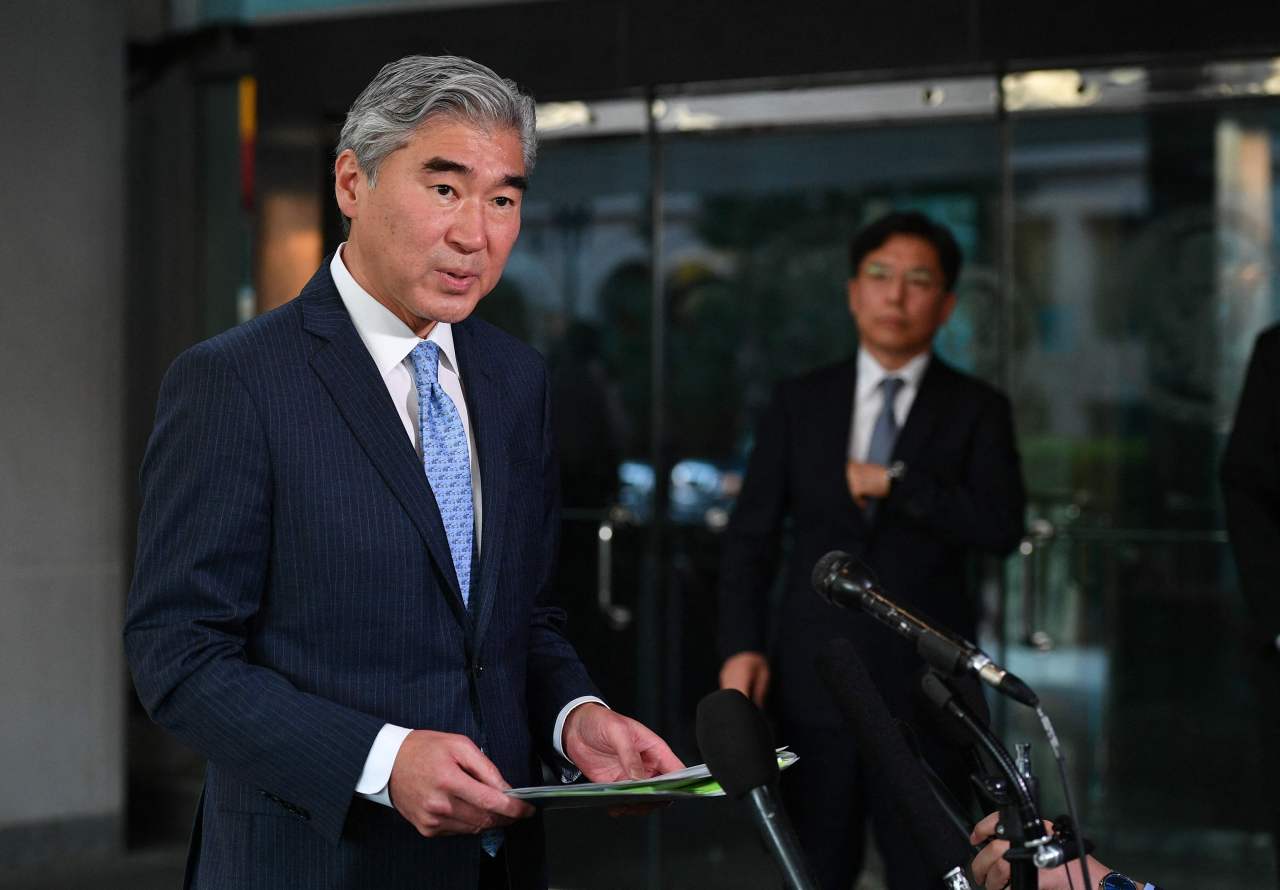US nuclear envoy to visit Seoul this week to discuss ‘end-of-war’ declaration
By Ahn Sung-miPublished : Oct. 19, 2021 - 15:30

Washington’s point man on North Korea, Sung Kim, said Monday that he will visit Seoul later this week to discuss ways to bring Pyongyang back to the dialogue, and that declaring an official end to the Korean War will be part of the agenda.
Kim, the US special representative on North Korea, revealed his plans after talks with South Korea’s chief nuclear envoy, Noh Kyu-duk, in Washington on Monday, ahead of a three-way meeting Tuesday with their Japanese counterpart, Takehiro Funakoshi.
The Foreign Ministry confirmed his visit, saying Kim is set to hold bilateral talks with Noh on Saturday, discussing pending issues surrounding the Korean Peninsula, including South Korean President Moon Jae-in’s proposal to formally declare an end to the Korean War 1950-53.
But as the allies ramp up diplomacy, the North poured fired what appears to be a submarine-launched ballistic missile into the East Sea on Tuesday, in a continuation of recent weapons launches. By alternating between conciliatory gestures and shows of force, Pyongyang’s is seen as attempting to build up its nuclear deterrent while pressing Seoul to take action in its favor, such as convincing Washington to ease sanctions.
Kim said he and Noh discussed the end-of-war proposal during their meeting, marking the first time a senior US official had mentioned publicly that the related talks are underway between the two countries.
“I look forward to continuing those discussions and other issues of mutual concern when I am in Seoul later this week,” Kim told reporters after the meeting at the State Department.
“Through a series of our recent discussions, I believe the US’ understanding of our end-of-war declaration proposal has deepened,” Noh told reporters, adding a substantial part of the meeting had been allotted to “in-depth discussions on the end-of-war declaration.
The two Koreas are technically still at war, as the Korean War resulted not in a peace treaty, but in an armistice agreement signed by the US-led United Nations Command, China and North Korea.
In recent weeks, President Moon has been pushing for an end-of-war declaration -- something he has supported throughout his presidency -- arguing that such a declaration could encourage Pyongyang to give up its nuclear arsenal.
On Monday, the US diplomat repeated calls for dialogue with the North, despite the regime’s continued rejection of Washington’s diplomatic overtures.
“The US continues to reach out to Pyongyang to restart dialogue. Our intent remains the same. We harbor no hostile intent toward the DPRK, and we are open to meetings without preconditions,” said Kim, referring to North Korea by its official name, the Democratic People’s Republic of Korea.
The envoy said the US is prepared to work cooperatively with the North to address areas of humanitarian concern.
“The US supports the provision of humanitarian aid, consistent with international standards for access and monitoring, to the most vulnerable,” he said.
But in the meantime, he said, the US would continue to implement the UN Security Council resolutions against North Korea and bring up human rights concerns.
“Even as we remain open to dialogue, we also have a responsibility to implement the UN Security Council resolutions addressing the DPRK,” he said.
The UN Security Council has imposed sanctions over the North’s nuclear weapons and ballistic missile programs.
“Furthermore, consistent with the Biden-Harris administration’s focus on human rights, we will continue to advocate for the human rights of the North Korean people and call for an immediate resolution of the abduction issue,” he said, referring to the abduction of Japanese nationals by North Korea in the 1970s and 1980s.



















![[Today’s K-pop] Treasure to publish magazine for debut anniversary](http://res.heraldm.com/phpwas/restmb_idxmake.php?idx=642&simg=/content/image/2024/07/26/20240726050551_0.jpg&u=)